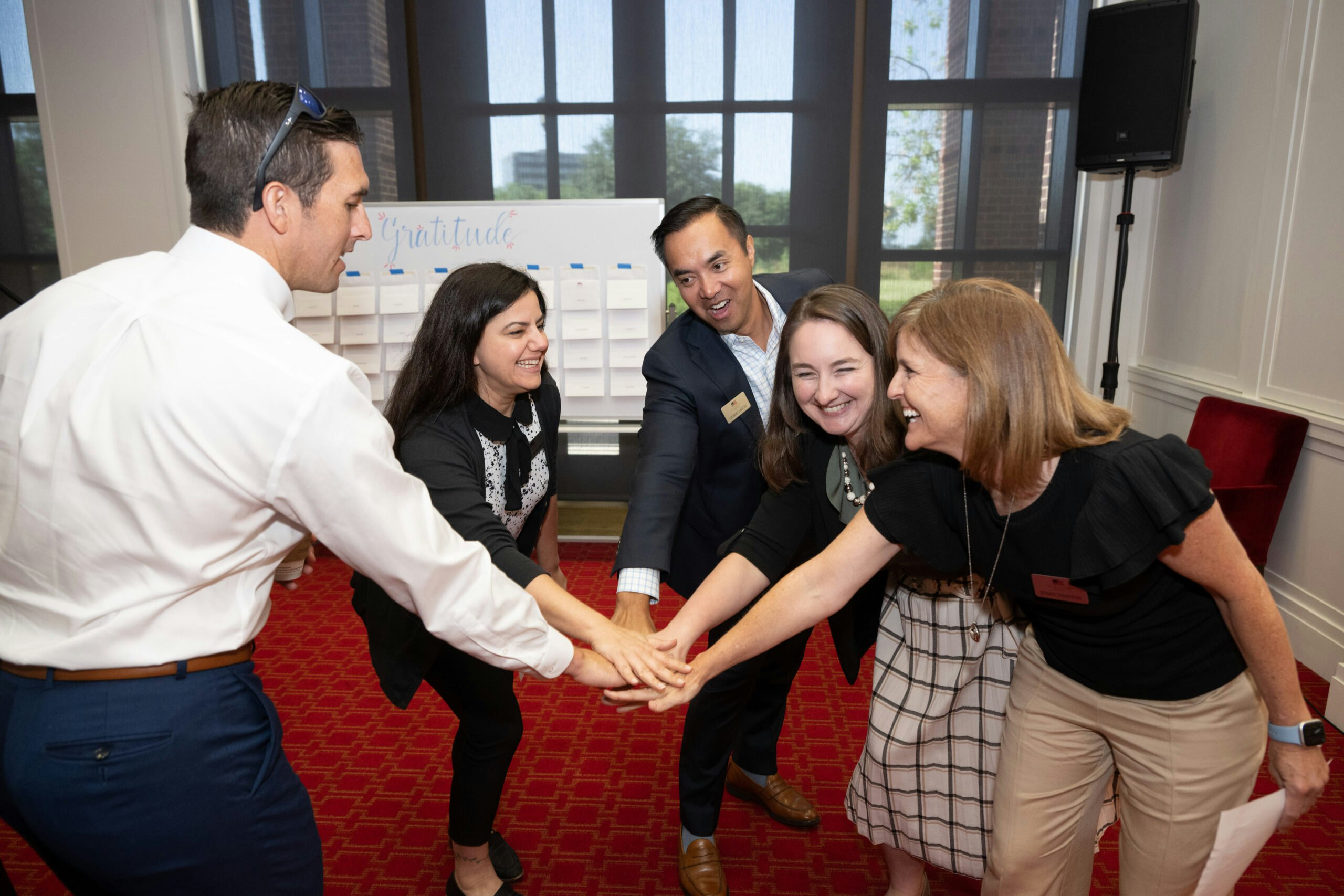At the Bush Institute, we believe our Stand-To Veteran Leadership Program and Presidential Leadership Scholars program are developing leaders who share in humanity and embody democracy.
The strength of our nation lies in Americans’ unique ability to bring our own diverse experiences and shared humanity to the table with those who are different from us and use our distinctiveness to serve the greater good.
This is what makes the United States the greatest democracy and force for good in the world. But we’ve all felt the divisions chipping away at our unity at some point or another over the last several years.
We’re quick to categorize people by political alignment without actually getting to know them. It’s easier than ever to silo ourselves to reinforce our own ideological beliefs. Social media keeps us within our close networks and communities and gives us information how we like it, whether it’s factual or not. It’s easy to forget there’s a person behind an opposing viewpoint.
At the George W. Bush Institute, we believe that civility is a cornerstone to a thriving democracy and that recapturing it is critical to our nation’s future prosperity. One of the ways we promote these ideals is through our leadership programs – the Stand-To Veteran Leadership Program and the Presidential Leadership Scholars.
These programs bring together principled leaders from across the country, emboldening them to embody these democratic values and lead lasting, positive change in our country and abroad.
Our leadership model promotes challenging dialogue. Each year, we intentionally select participants representing the various demographics that make up the United States. Our goal is to bring people from different work sectors, ideologies, races, and ethnicities into one room – leaders who otherwise might not have the opportunity to meet.
We look for people who want to change themselves, their communities, and others, not simply add another line on their resumes. Gathering the leaders allows them to break through boundaries and work across divides, ultimately building a stronger society.
We believe it’s important to our democracy for the Scholars to learn to respectfully disagree and challenge their own perspectives. They’re expected to set aside their differences and personal biases and push themselves out of their comfort zones to find common ground. Every aspect of our programs, from logistics to curriculum, intentionally provides opportunities for Scholars to learn from others’ diverse experiences.
The results have been astounding. Our Scholars have gone on to change themselves, their companies, and communities at large, acting individually and collectively.
Beth Conlin, a 2021 Stand-To Veteran Leadership Program Scholar, was a military spouse who had faced employment barriers during an overseas deployment. After collaborating with 2019 Scholar Libby Jamison, an attorney, she was able to effectively discuss the need for more clarity around Status of Forces Agreements (SOFA) between the United States and nations where military forces are stationed. These intergovernmental pacts lay the groundwork for civilian spouses to work abroad during their partner’s military deployment.
Their efforts paid off in 2023, when President Joe Biden issued an executive order paving the way for military spouse employment opportunities around the globe.
Separately, Dr. Anahita Dua and Nubia Peña, both 2023 Presidential Leadership Scholars, made a connection that may literally save lives – or at least limbs.
Dua, an Associate Professor of Surgery and Vascular Surgeon at Massachusetts General Hospital and Harvard Medical School, focused during the program on decreasing the amputation rate in minority populations through multidisciplinary care. Peña had shared that a relative was in a nearby hospital and at risk for amputation. Dua lent her expertise, and the hospital altered its course of care for Peña’s relative. It has since changed how it approaches limb amputation procedures and care for all patients.
Without the Presidential Leadership Scholars program, Peña’s family might look different and Dua’s work wouldn’t be having the lifechanging impact it now does in a hospital system in Philadelphia.
These are just two of the many, many examples of changemaking by our Scholars. One thing they’ve taught us is that serving the greater good is a journey. We all have a role to play in ensuring we’re change advocates by staying curious, seeking compromise, reducing the binary, and finding common ground.
It’s unfortunately too easy to stand on the sidelines as our country becomes more and more divided.
The research is disturbing: The percentage of Americans who identify themselves as aligned politically with either the far right or the far left jumped to 21% in 2024 from 10% in 1994, according to the Pew Research Center. This same study identified a troubling percentage of Americans think the other party is a threat to our nation, a belief held by 27% of Democrats and 36% of Republicans.
At the Bush Institute, we believe our Stand-To Veteran Leadership Program and Presidential Leadership Scholars program are developing leaders who share in humanity and embody democracy.
Because of these leaders, we are wholly optimistic about the future of our country.




























